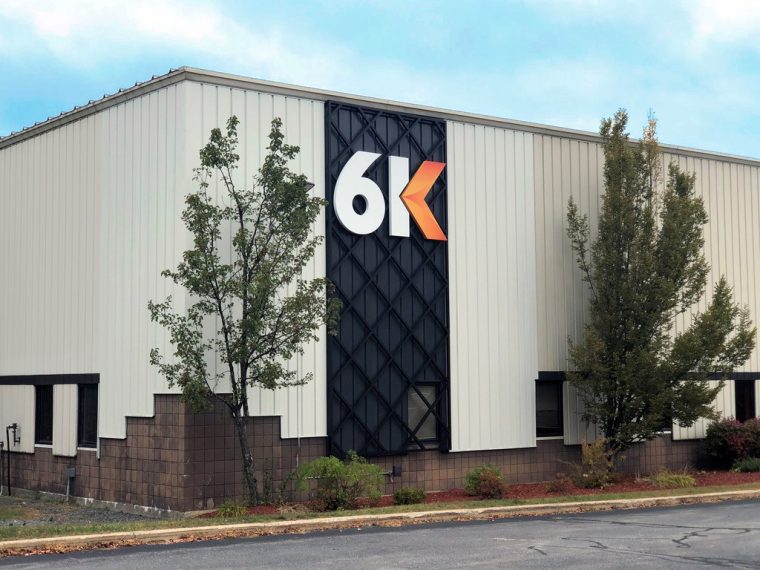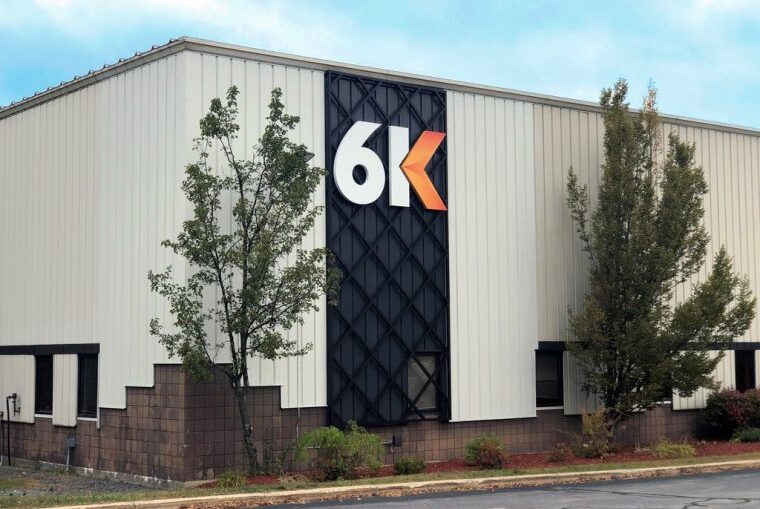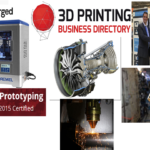

After just a few years in existence, 6K has made itself increasingly well-known in the 3D printing industry with its unique metal materials production technology. The startup suggests that its proprietary plasma process, UniMelt, is more sustainable method for making metal powders for additive manufacturing (AM) and other applications. Now, the company is driving its sustainability mission further by investing $25 million over the next two years to triple the size of its facility in North Andover, MA to the development and production of battery materials.
While 6K believes its material processing technology can be applied to a number of verticals, it has two divisions dedicated specifically to some of these leading applications: 6K Additive and 6K Energy. The firm’s newly announced Center of Excellence for 6K Energy is working toward the creation of sustainable battery materials for electric vehicles, grid storage and consumer items. The planned investment will see around ten UniMelt systems deployed at the 33,000 sq/ft site, capable of producing 100 tons of material from each system per year, as 6K works on full-scale development and pilot production of battery materials. Additionally, the startup will be expanding its development team and materials testing capabilities.
A recent addition to the 6K Board, former Congressman Joe Kennedy III, explained how the purported goals of the new presidential administration align with those of 6K, including the need to re-shore production in the wake of COVID supply chain disruptions:
“The new administration’s executive order clearly outlines a commitment for the United States to lead clean energy technology especially in the area of batteries for electric vehicles. The new order also calls for a review of supply chains and ensuring the domestic supply of four key areas, one of them being battery production. The new Center of Excellence will not only allow 6K to address the administration’s concerns, but it enables 6K’s key partners and players in the battery production space to take advantage of a scalable, green process based in the US to fulfill the US supply chain requirements.”
The facility will be working to develop new materials, such as high energy density and single crystal cathode, solid-state electrolyte materials, silicon anode and others. 6K will aim to establish pilot production capabilities that will allow partners to become qualified, domestic producers of these materials. At the same time, the Center of Excellence will serve as a tool for selling UniMelt machines to customers so that they can commercialize battery materials.
“Production of advanced materials for batteries is virtually non-existent in the United States. The investment we are making in infrastructure and team will accelerate our time-to-market to deliver lower cost, next generation battery materials produced on US soil. The UniMelt platform’s sustainability benefits, and the scale of the new Center of Excellence, means that 6K Energy can deliver the advanced materials the market requires for next generation batteries and the administration’s mandate for improvements in the supply chain for battery materials,” said 6K CEO Dr. Aaron Bent.

It is now painfully clear that our global fossil fuel-based infrastructure needs a complete overhaul, with scientists now arguing that even our economic and social systems may require fundamental alterations. One of the proposed infrastructure changes is battery-powered electrification, with global lithium ion battery production capacity expected to grow from 220 gigawatt-hours in 2018 to 1.1 terawatt-hours in 2028, according to Benchmark Mineral Intelligence.
However, a chapter on “Renewable Energy Resource Assessment” in Achieving the Paris Climate Agreement Goals estimates that there will not be enough lithium or cobalt available to meet the production required for renewable technology demand.
“The cumulative demand for cobalt from renewable energy and transport exceeds the current reserves in all scenarios, and for lithium, the cumulative demand is exceeded in all scenarios, except the ‘potential recycling scenario,’” the authors write.
While alternatives to lithium-ion batteries, such as lithium-sulfur, may replace the rare and problematic metal cobalt, “a shift to Li–S will increase the demand for lithium because these batteries have a higher amount of lithium,” the authors explain. Instead, they believe that metal recycling will be more viable method for obtaining rare materials. So far, the recycling infrastructure is not sufficiently developed for such a project and the recycling processes for some materials can be environmentally and socially hazardous in themselves.
We also know that these materials are already problematic from a geopolitical and social standpoint. Cobalt is almost entirely sourced from the Great Lakes region of Africa, where human rights violations, child labor and pollution are prevalent in cobalt mining operations. At the same time, this metal drives military conflict in the region, with Western business interests often benefitting in the end. Meanwhile, in the Andes, lithium mining water tables are being destroyed, lakes drained and ecosystems wrecked while indigenous farmers are driven from their land.
Interestingly, 6K does not note any specific research into recycling materials for use in batteries, though it has demonstrated its ability to recycle metal scrap into additive powders. Due to the above mentioned issues with the existing battery materials supply chain, it would be exciting to hear that 6K could recycle scrap lithium batteries, as that will be essential to replacing existing fossil fuel-based infrastructure.
Regardless, 6K does boast that its UniMelt technology is overall more sustainable than traditional cathode production plants. The company claims that, if a battery cathode manufacturer replaced its legacy process with a UniMelt platform, it could entirely eliminate wastewater, drop greenhouse gas generation by 70 percent, and cut water consumption by 90 percent.
To demonstrate just how tangled the business world is, however, we can highlight that 6K also courts military suppliers and, as previously noted, the U.S. military is the largest institutional user of fossil fuels. While easing it off of fossil fuel dependence may be beneficial, aiding its other military goals may only increase its usage of these fuels in the short term.
If you're looking to request photorealistic CGI in the USA, our service offers an easy and efficient way to get stunning, lifelike renderings for your architectural and real estate projects. Through our platform, you can quickly request high-quality CGI images that accurately capture the essence of your designs. Whether it's for a residential or commercial property, our experts specialize in creating realistic 3D renderings that highlight every detail, bringing your vision to life with exceptional clarity and precision.
Through our website, requesting photorealistic CGI becomes a seamless experience. With our help, you can get highly detailed 3D visualizations that look just like photographs, providing a realistic representation of your project before it's even built. Our team ensures that every element, from textures to lighting, is meticulously rendered, giving you an impressive, lifelike result that will leave a lasting impact on your clients and stakeholders.






Leave a Reply
You must be logged in to post a comment.